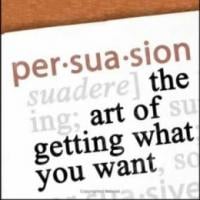How Not to Make a Persuasive Case

A project manager named Stan tried to persuade Alex, his manager, to allow team members to work from home. “Everybody’s doing it,” he told his manager. Everybody? Really?
To say “everybody’s doing it” is to use an absolute, and in this case, it’s one easily proven false. Speaking in absolutes—always, never, everybody, nobody—makes a case less persuasive, not more.
Stan didn’t have any data about the effectiveness of telecommuting. He emphasized that working from home would mean no commuting, no time wasted in meetings, and no interruptions, ergo, happier employees. But that claim, true as it may be, says nothing about the impact on such things as project timeframes, costs, security risks, communication, and the transition to home-based development.
Stan neglected to consider Alex’s perspective. For example, was Alex most concerned about increasing revenue, accelerating project turnaround, decreasing costs, improving quality, reducing defects, or something else altogether? Not taking this into account meant Stan missed an opportunity to orient his case accordingly. The better you relate your case to the priorities and preferences of the people you’re seeking to persuade, the better the chances of winning them over.
Stan might have done some research to gather relevant data, or at a minimum, questioned his telecommuting friends. Basically, before attempting to make a persuasive case, know what you’re talking about. Check out the facts and find compelling examples to support your case.
Listening is also crucial. Stan was so eager to persuade Alex that he talked ... and talked ... and talked. By failing to tune in to Alex’s objections, he missed the opportunity to respond to them.
Furthermore, when attempting to persuade, timing matters. Stan scheduled his meeting with Alex in the first time slot after Alex’s return from vacation. Not a good idea! Being distracted by the priorities and problems awaiting his return meant Alex couldn’t give Stan his undivided attention. Stan would have been smarter to schedule a meeting at Alex’s convenience.
Avoiding the mistakes Stan made is no guarantee of getting agreement when you attempt to persuade. But overlooking these things definitely won’t help your case. Persuasion is an art, and the best chances of success go to those who pay attention to these tips.

